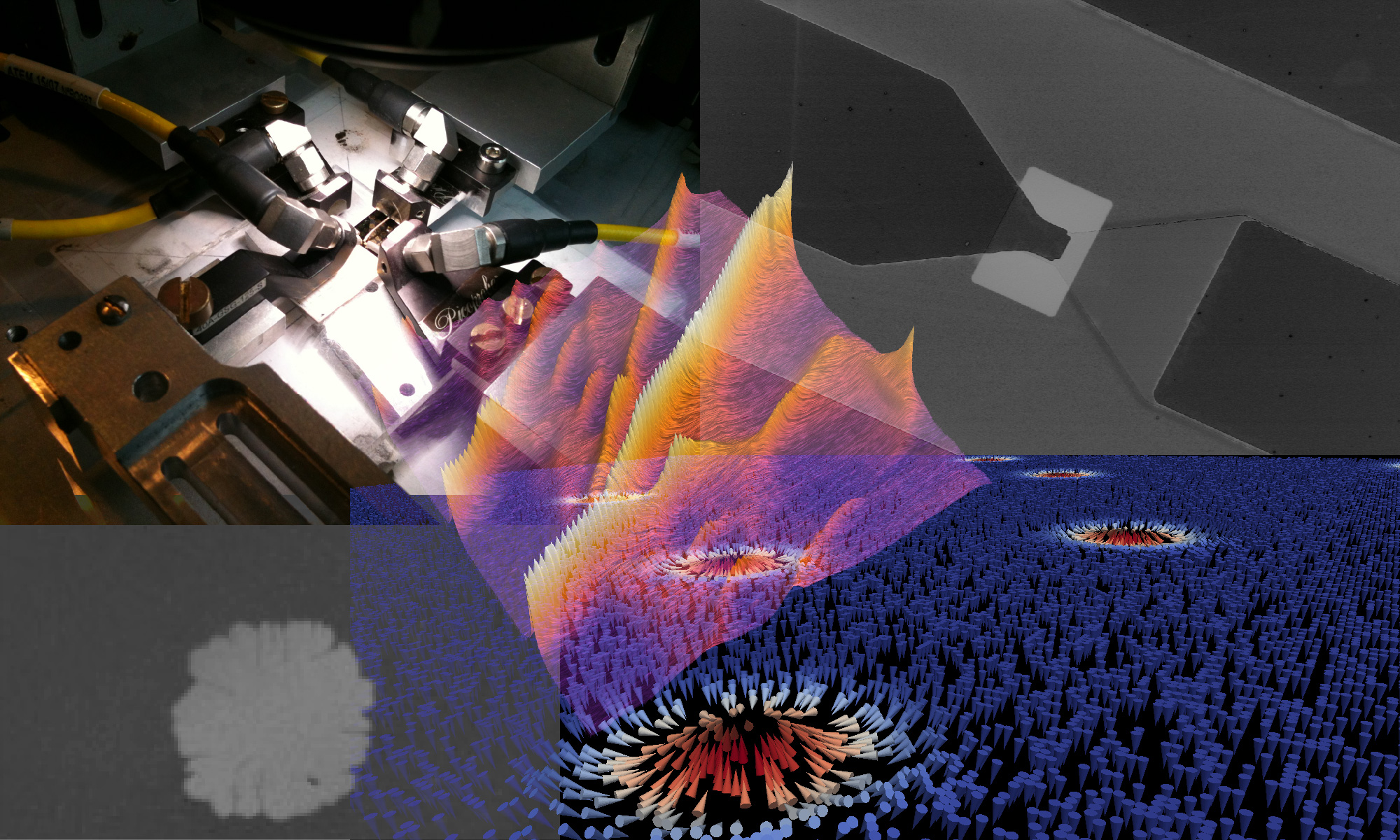Scientific project:
CMOS technology through transistor scaling has been the main driver for the huge productivity growth registered over the past 50 years. However, transistor scaling is approaching its physical limits and new devices and architectures are being investigated to continue the performance scaling. To replace the silicon transistor, many devices have been proposed and are currently at varying levels of maturity – from ideas to experimental demonstrations. Devices with magnons (i.e. propagating waves formed by collective spin excitations) as a state variable is one of the promising concepts for wave-based computing.

While the generation, detection, propagation and phase manipulation of magnons in spintronics devices is now well understood, the physical implementation of magnon-based computing requires to understand their non-linear dynamics, including the magnon-magnon collisions.
In the framework of a collaboration with IMEC (one of the major microelectronics lab in Europe) that conduct the nanofabrication, the intership student will use 4-terminal devices (3 magnon emitters and one magnon collector) to electrically generate 3 magnon baths and study their mutual interactions once diffused though a magnon bus. The standard inductive techniques (right figure) as well as the innovative spin-transfer-torque emittors with magnon “carrefour” (left image) will be used.
Methods and techniques: Experiments with high-frequency magneto-electrical techniques. Modeling: analytical and numerical micromagnetics.
Possibility to go on with a PhD ? Yes. NB: The lab will move from Orsay valley to the plateau de Saclay during the summer 2018.
Envisaged fellowship ? After a Master internship entirely in Orsay, the student will be offered to engage into a PhD provided a grant is allotted by the Electrical, Optical, Bio – physics and Engineering (EOBE) doctoral school at the university Paris-Saclay.
Possibility to go on with a PhD ? Yes. NB: The lab will move from Orsay valley to the plateau de Saclay during the summer 2018.
Contact: thibaut.devolder[[@]]u-psud.fr
